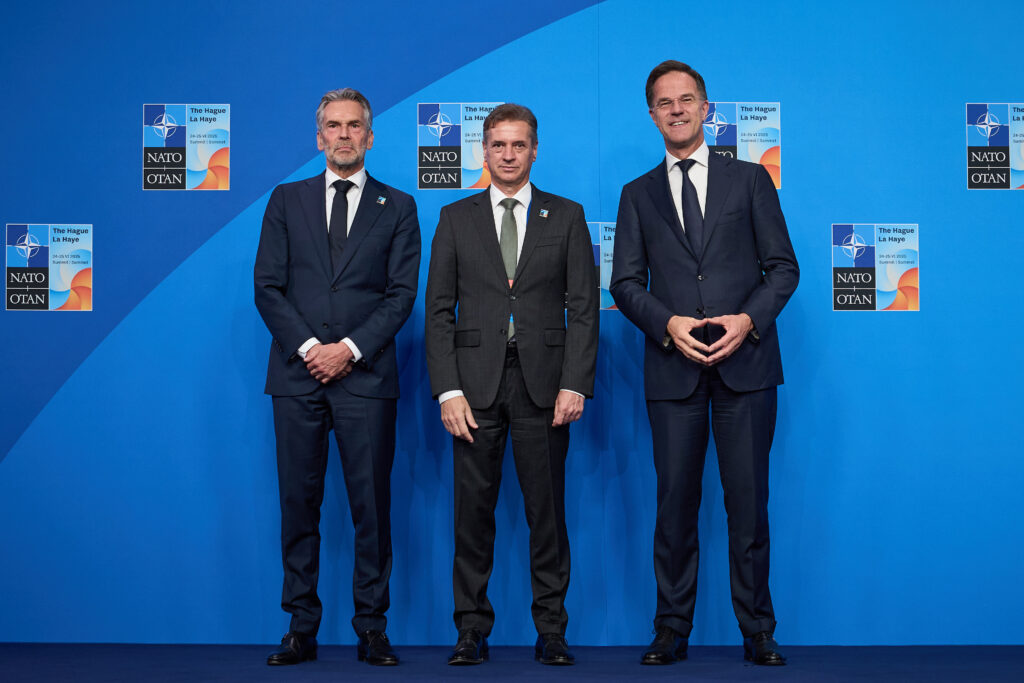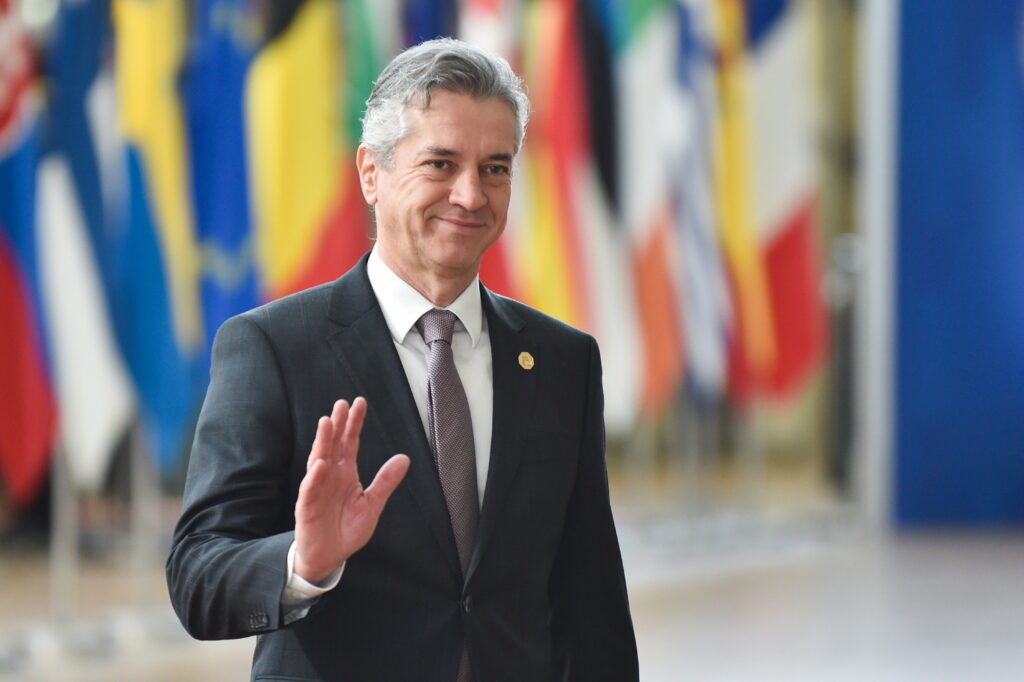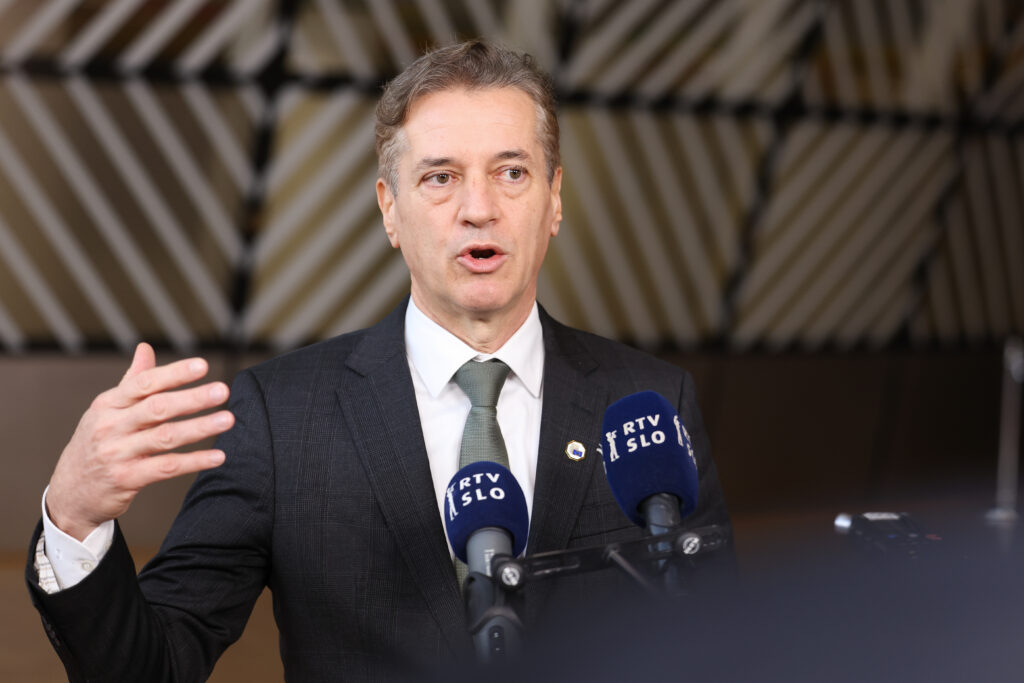Brussels – Slovenia will not hold the anticipated referendums on the increase in military spending and on the country’s NATO membership, which had been announced in the past few weeks. The decision comes from the Parliament in Ljubljana, only two weeks after it approved the convening of the first popular consultation. If Slovenians had gone to the polls, the government majority would almost certainly have imploded.
The story of the Balkan country’s double referendum on the sensitive defense issue ends in nothing. A vote in the National Assembly (the lower house of the country’s legislature), convened for a special session on July 18 just before the summer recess, annulled the decision to hold a popular referendum on the increase in military spending, which was to go along with another referendum on whether to remain in the North Atlantic Alliance.
The reality is that the double referendum would most likely have led to the unravelling of the fragile government coalition, within which a political short-circuit has occurred in recent weeks precisely on the issue of defense.
 From left: Dutch Prime Minister Dick Schoof, Slovenian Prime Minister Robert Golob, and Nato Secretary General Mark Rutte (photo: Nato)
From left: Dutch Prime Minister Dick Schoof, Slovenian Prime Minister Robert Golob, and Nato Secretary General Mark Rutte (photo: Nato)
The center-left majority junior partner Levica (‘Left’) had called the first consultation in early July after the executive led by Robert Golob had pledged to raise defense investment to 5 percent of GDP at the NATO summit in the Hague on June 25.
Slovenia is one of the Alliance’s member states with the lowest defense spending, accounting to less than 1.3 percent of GDP. Golob aims to reach 3 percent by 2030, while the commitment agreed in The Hague is 5 percent by 2035.
According to the radical left, the country cannot afford such a massive increase in military spending, especially if it were to take place at the expense of social programs. The Assembly had given the green light to Levica‘s motion with 46 votes in favor, including those of the opposition and, above all, of the Social Democrats (SD), the executive’s third leg, which counts seven elected members in the hemicycle.
At the time, the premier, leader of the liberal Svoboda party (‘Freedom’), which is the leading force in parliament, had branded the call for a referendum as a “populist deception.” “There are only two possible paths: either we stay in the Alliance and pay the membership fee, or we leave the Alliance,” he had stated bluntly. He then doubled down, proposing a second referendum on Ljubljana’s membership in NATO, which it joined in 2004 (the same year Slovenia also joined the EU).
On Friday, however, the parliament turned around again, on the initiative of Golob’s party. The distances between the government partners can be clearly seen in the vote count. Out of the 90 members of the House, 44 supported the annulment, seven opposed it, and the rest of present members abstained. In support of the annulment voted all 39 MPs from Svoboda, three members of the SD, and two representatives for the linguistic minorities.
 Slovenian prime minister Robert Golob(photo: Gaetan Claessens via Imagoeconomica)
Slovenian prime minister Robert Golob(photo: Gaetan Claessens via Imagoeconomica)
Golob hailed the “responsible conclusion of the opposition’s political games,” glossing over the fact that the majority had proposed both referendums. The liberal group leader in the House, Nataša Avšič Bogovič, breathed a sigh of relief, reiterating that summoning citizens to the polls would have been “detrimental to the voters and Slovenia” and describing the question proposed by Levica as “misleading.”
However, it was mainly the SD that split: while three deputies supported Svoboda‘s motion, the other four abstained. Group leader Jani Prednik said that the party still supports referendums and would like to initiate a public debate on the issue. At the same time, from the ranks of Levica, there has been some finger-pointing at the backtracking of the Social Democratic allies.
On the other hand, four members of Levica plus two independents, and one member of the Democratic Party (SDS), the nationalist formation led by former premier Janez Janša, voted against. The rest of the opposition – the bulk of the SDS and the Christian Democrats of the NSI – abstained, bringing the government’s contradictions out into the open. “The coalition proposed the referendum, the coalition revoked it: truly hypocritical,” was Janša’s caustic comment.
English version by the Translation Service of Withub
